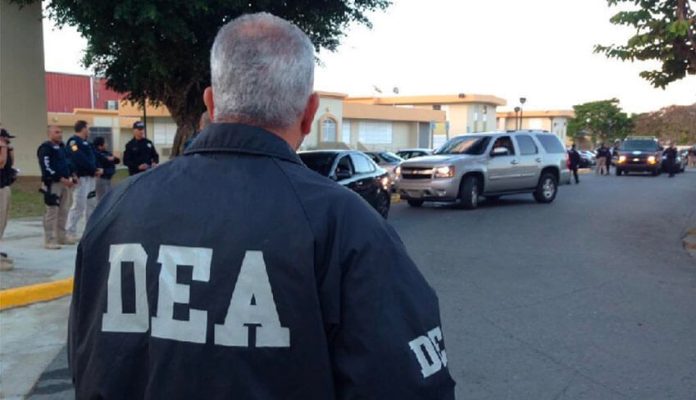The federal government is once again issuing visas that allow United States Drug Enforcement Administration (DEA) agents to work in Mexico, a U.S. official said Tuesday.
Broadcaster CNN reported almost two months ago that Mexico had not processed visa applications for 24 DEA agents this year.
Anonymous White House officials told CNN that the 24 agents had been waiting for more than six months for their visas to be issued.
The process normally took just a month, but Mexico enacted a law in January that restricts and regulates the activities of foreign agents in Mexico. The long waits for visas appeared to be related to the promulgation of that legislation.
Todd Robinson, assistant secretary of state for the Bureau of International Narcotics and Law Enforcement Affairs, told a hearing of the United States Senate Committee on Foreign Relations that the Mexican government “just agreed to more visas for DEA agents in Mexico.”
He also said that U.S. authorities are working “very closely” with the Mexican government on security issues.
“They have agreed with us on an accord that lists a number of things we’re going to do, including greater cooperation on intel exchange,” Robinson said.
“… One of the aspects that we miss, that is not as public, is the great work we do … with state and local governments in Mexico. They clamor for greater opportunities to cooperate and collaborate with us on security issues, on equipment, on training, so we are trying to keep up with the demand,” he added.
“The last thing I would say is we have some work to do at home on this issue as well. If we can’t get a handle on the demand side for these drugs—” Robinson said before being cut off by a senator.
His revelation that Mexico was issuing new visas for DEA agents came after the agency’s chief, Anne Milgram, requested in October the reactivation of joint anti-narcotics operations and greater sharing of intelligence.
Matthew Donahue, deputy chief of operations for the DEA, said in May that joint efforts to combat drug cartels in Mexico had broken down due to a collapse in trust and cooperation between law enforcement forces and the militaries in the two countries.
“They themselves are too afraid to even engage with us because of repercussions from their own government if they get caught working with the DEA,” he said.
The breakdown in bilateral security relations could be traced back to the United States’ arrest of former defense minister Salvador Cienfuegos in October 2020 on drug trafficking and money laundering charges. The arrest of the ex-army chief — whom the United States subsequently returned to Mexico under pressure from Mexican authorities — occurred without the U.S. first notifying Mexico, a slight that led the federal government to express “profound discontent” to its counterpart north of the border.
Security relations have improved considerably since then. The two countries have sought to reset their relationship after U.S. President Joe Biden took office in January, and they announced a new agreement encompassing security after top officials held bilateral talks in Mexico City on October 8.
In the “bicentennial framework for security, public health, and safe communities,” the two countries pledged to work together to combat the trafficking of drugs and weapons.
The leaders of Mexico, the United States and Canada subsequently acknowledged that more needs to be done to combat drug trafficking and gunrunning.
“To address these issues, and protect our communities from harms emerging from the global illegal drug environment and firearms trafficking facing North America, we need a collective, coordinated approach,” President López Obrador, President Biden and Prime Minister Trudeau said in a joint statement after the North American Leaders Summit in Washington D.C. last month.
“We commit to continue addressing these issues via venues like the North American Drug Dialogue in 2022 and beyond,” they said.
With reports from Reforma
